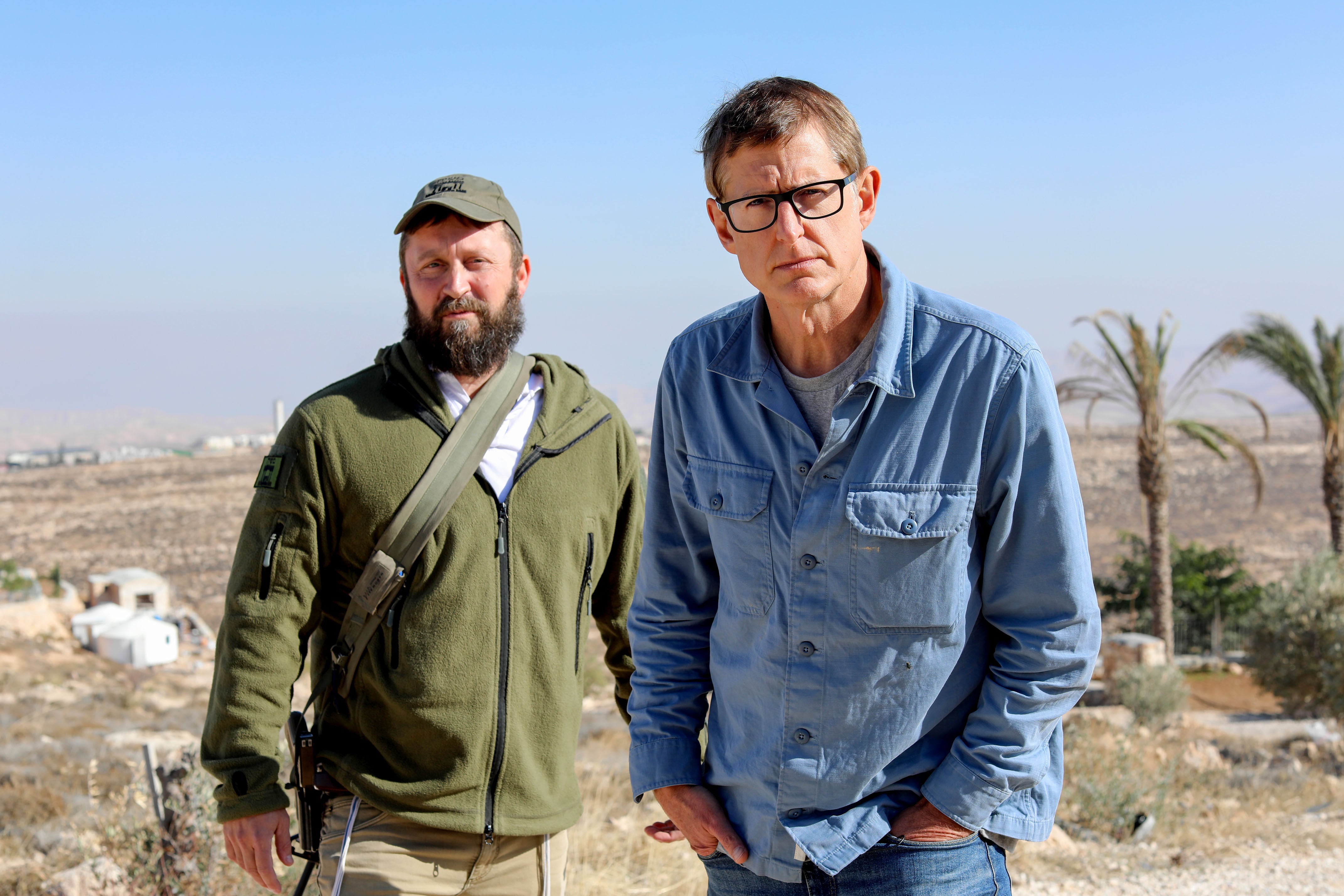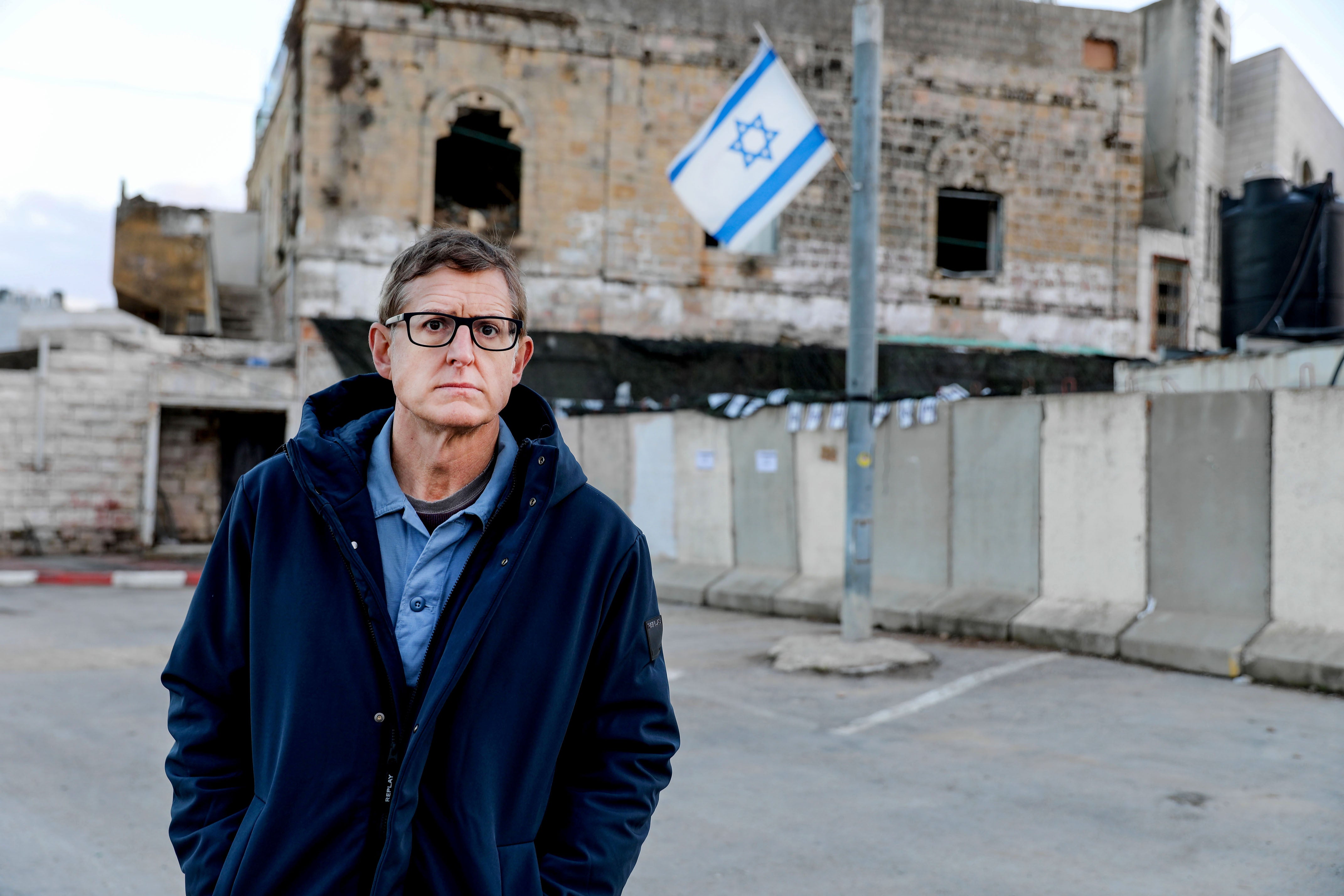
Louis Theroux has been praised for his return to TV after the release of The Settlers.
The BBC Two documentary is a follow-up to 2011’s Ultra Zionists, in which he visited and interviewed Israeli settlers in the Palestinian West Bank.
In the new film, Theroux arrives back in the West Bank 14 years after his last visit, where settler ideology has found itself gaining political traction. Among the settlers that he meets is Ari Abramowitz who says they don’t believe Palestine exists as a nation, or with “a real claim to this land”.
Theroux also meets Issa, a Palestinian man who gives him a guided tour of the city of Hebron in the southern West Bank, where everything is closed with dozens of checkpoints in place.
The journalist has been praised for his signature interview style, through which he makes his subjects feel comfortable enough to speak freely.
“As ever Louis Theroux doing great work,” said one fan on X/Twitter. “His documentary The Settlers was very good. Kind of let the settlers just show people who they are.”
Another viewer wrote online: “Louis Theroux’s brilliance as a journalist is that he has such a gentle approach that truly unhinged people feel safe enough to spout their world-views.”
“Louis Theroux delivered a masterpiece in silence,” concluded another fan.

In The Independent’s four-star review of the documentary, Phil Harrison pointed out that Theroux’s moments of accidental honesty when talking to his subjects are his “biggest strength as an interviewer” as “people don’t feel threatened by him”.
“They’re encouraged to open up,” he wrote. “At the beginning of his career, he often deployed this skill in the service of frivolity. He’s now added seriousness – and even, at times, a degree of physical bravery.
“He’s been criticised in some quarters for platforming this particular strain of extremism, but no one is getting off the hook here – and in fact, challenging people who seem beyond the pale is hardly unfamiliar territory for Theroux.”

The documentary-maker is best known for his disarming interviewing style, as seen in his 2007 documentary about a controversial Christian ministry The Most Hated Family in America and his 2018 polyamory series Altered States: Love Without Limits.
Among his most famous and widely watched documentaries is Louis and the Nazis (2003), in which the filmmaker spent time with a white supremacist organisation.




